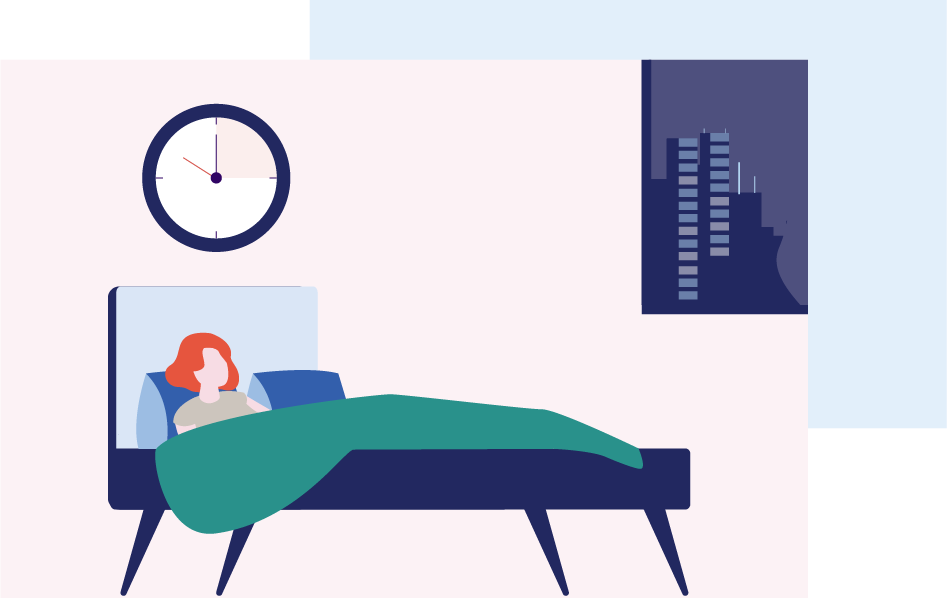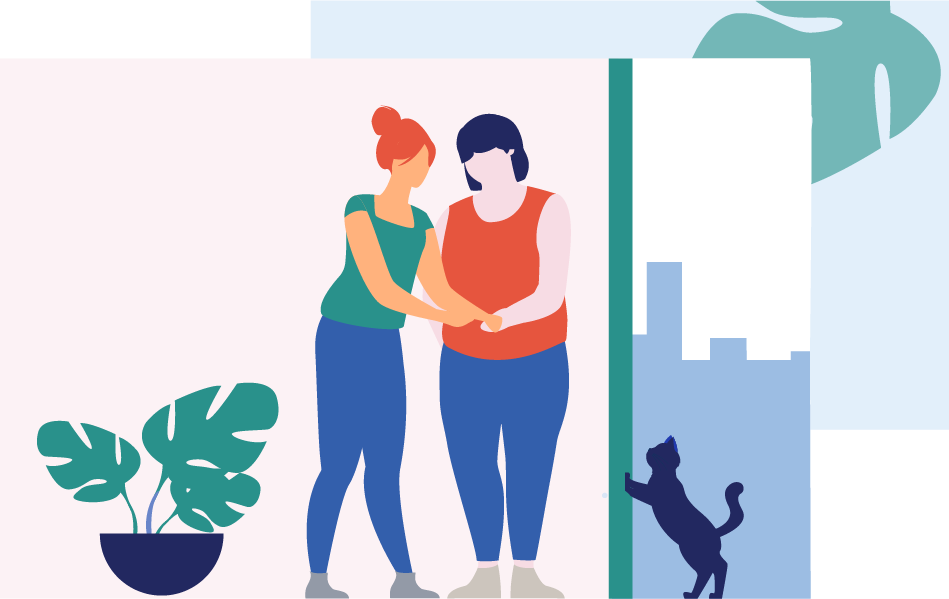
How to manage diabetes through exercise
You’ve probably had someone tell you to make exercise part of your life. You’ve probably heard there’s a mountain of evidence that our bodies are meant to be used and move around.
Sleep matters. Just like a healthy diet and regular exercise, regular sleep is important for everyone wishing to maintain a healthy lifestyle. And it is especially important for people living with type 2 diabetes.
The reason is simple. Evidence indicates that later bedtime routines and poor quality of sleep are associated with higher blood glucose levels and poorer control of blood glucose levels following meals. (1)
If you’re interested in addressing or preventing a scenario like
that, then this blog post is for you.
Read on for some useful tips on what to eat – and when – in order to sleep well, what to do about diabetes insomnia, sleep apnoea other sleep-related problems, and how establishing healthy habits can help you improve general well-being and manage diabetes more successfully.

Insomnia refers to difficulty in falling or staying asleep. Data suggests the problems are more common in people who are diagnosed with type 2 diabetes than those who are not. (2)
My first tip is very simple: Begin going to bed and getting up at the same time every day. Improving the regularity of your sleep is a great way to address sleep insomnia and get back to better sleep.
The more dedicated you are towards achieving a regular sleep pattern, the easier it will be to adhere to a healthy rhythm long-term. I know that things can slide a bit at the weekends, and if they do, don’t be hard on yourself.
Still, my advice is to have as few "cheat days" (or late nights) as possible, because that way your circadian clock will more quickly adapt to the new rhythm.
A concrete tip for getting started is to use your alarm clock not just to establish consistency in the morning, but in the evening too! It’ll prompt you to remember every night and make it easier to build a helpful routine.
Additionally, in order to segue smoothly into a serene and restful state every night, program your phone to automatically go into “sleep mode” an hour or two before you actually switch off the lights.

Good sleep is carefully prepared-for sleep. That’s why I recommend creating a bedtime ritual that includes relaxing activities. By relaxing for 1–2 hours before bed, you help your body get ready for sleep. Depending on your preference, consider a gentle yoga routine, breathing exercises, a light-hearted book, an easy crossword puzzle, Sudoku or a warm bath.
Also, make sure your bedroom is a sleep-only zone. Television, smartphones, tablets, even clock radios that are too bright can interfere with your ability to fall and stay asleep. Choose a bedside lamp that produces a soft and gentle light – ideal for the peaceful moments before and after deep sleep when our eyes are most sensitive.
If you need to have your smartphone by your bed for your alarm or emergencies, change the settings to only receive messages that are an emergency. Make sure your pillow and mattress are supportive and inviting, and that the room is neither too hot nor too cold.
Finally, be wary of daytime napping! Naps can do wonders to help us get through the day, but they can lead to insomnia. If naps are at the cost of your nocturnal sleep, consider giving them up.

As every person living with diabetes knows, diet is really important. But so is when you eat. A good tip is to make a rough plan of your day in the morning and ensure that you don’t have meals late at night. Why? Because a late dinner (especially a large one) can spike your blood glucose and keep it at an elevated level until morning, and that’s to be avoided. (3)
Some foods are more helpful than others when it comes to supporting good sleep later. Here, preferences may differ. Personally, I like to pick and mix from this list:
● chicken
● lean meat
● fish
● whole-grain foods
● eggs
● spinach
● nuts and almonds
Watch out for carbohydrates, though. White rice, pasta, bread and potato are best avoided.
Be careful with caffeinated drinks, too. I find that whenever I drink black tea, coffee, caffeinated sodas, even hot chocolate, after 2 or 3 in the afternoon, it interferes with my sleep. If you’re quite susceptible to caffeine, it’s best to avoid it altogether. Herbal tea, chamomile, peppermint or passionflower tea might offer a good alternative if you like hot drinks.

Physical activity is also central to a good and healthy life with diabetes. It also happens to be a great way to combat insomnia and improve your sleep pattern. That’s relevant when you bear in mind that insomnia negatively affects blood glucose control.
Aim to get at least 30 minutes’ exercise a day. It can be something as simple as walking, which I particularly enjoy. My daily walks not only improve the quality of my sleep – they lift my mood, help to relieve stress and give me a sense of being in control in my body.

It is natural to be concerned or feel upset about the limitations that diabetes can impose on life. In my experience, the best way to make sad feelings go away is by sharing them with a friend, partner or loved one.
So seek out the people in your life who are good listeners and constructive sparring partners. Even if you haven’t expressed personal concerns to them before, see if the relationship can be adapted in such a way that both of you can access support or sympathy in each other.
Mental health is ultimately not distinct or separate from general health. (All the body’s functions and features are connected – more or less directly, true, but connected nonetheless.) A friend you can reach when you really need to talk can make the difference between a good night’s sleep and a troubled one. And as we have seen above, a good night’s sleep (with no insomnia) is associated with better blood glucose control.

If these tips and ideas don’t improve your sleep, the best thing to do is to talk to your doctor. Conditions that affect or occur during sleep – such as sleep apnoea or diabetic peripheral neuropathy – can be serious or lead to long-term health issues over time.
Therefore, aim to have an open and ongoing dialogue with your doctor about such issues. That will enable you to address any issues before they negatively affect your health and well-being.
The advice is based on the writer’s experience and may deviate from professional opinion in medicine and science. Consult your doctor before making any changes to your diabetes management routines.
January 2024. IE23DI00200
(1) Tsereteli N, Vallat R, Fernandez-Tajes J, et al.: Impact of insufficient sleep on dysregulated blood glucose control under standardised meal conditions. Diabetologia, 65(2), 2022: 356–365. https://doi.org/10.1007/s00125-021-05608-y
(2) Tan X, Egmond Lv, Chapman CD et al.: Aiding sleep in type 2 diabetes: therapeutic considerations. The Lancet Diabetes & Endocrinology, 6(1), 2018: 60–68. https://doi.org/10.1016/S2213-8587(17)30233-4.
(3) https://www.diabetes.org/diabetes/treatment-care/high-morning-blood-glucose